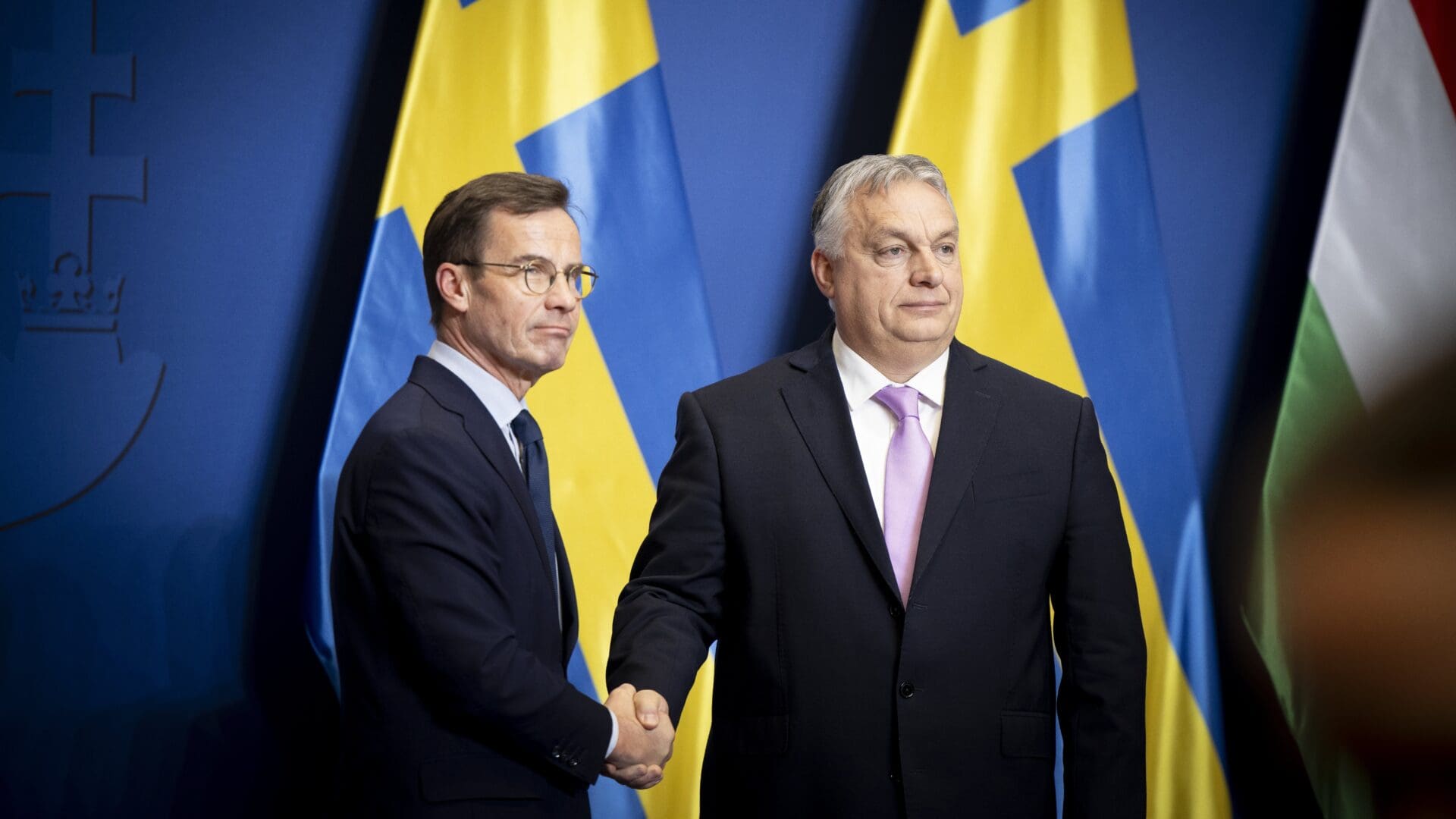The Hungarian National Assembly approved the ratification of Sweden’s NATO membership with a vote count of 188 in favour and six with no abstentions on Monday, 26 February. At the time of the vote, three MPs were absent. A long applause followed the parliamentary vote.
Sweden applied to join NATO together with Finland in May 2022. However, unlike that of its neighbour, the Swedish ratification process has been delayed due to concerns raised by Türkiye and Hungary. Ankara’s primary security concerns were related to the activities of the Kurdistan Workers’ Party (PKK) in Sweden. Following negotiations between Swedish and Turkish officials, the Turkish parliament voted in favour of ratification on 23 January 2024, a decision subsequently endorsed by President Recep Tayyip Erdoğan on 26 January.
Afterwards, only Hungary’s ratification of Swedish NATO membership remained pending. However, due to
the deterioration of relations between the two countries
due to a number of factors, including negative remarks about Hungary made by Swedish politicians, this process was significantly delayed.
In March of last year, Balázs Orbán, the Prime Minister’s political director, compiled Swedish statements and actions questioning Hungarian democracy in a post on the social media platform X. For instance, Ulf Kristersson, the then leader of the Moderate Party and now the prime minister, explicitly stated that the processes in Hungary must be restrained at the EU level. The Prime Minister was also been among the first to call for the exclusion of Fidesz from the European People’s Party. Jessika Roswall, former EU spokeswoman for the Moderate Party and now EU affairs minister, has also joined him in lobbying Brussels to limit payments to Hungarians. Johan Pehrson, Minister of Employment, repeatedly stated that Hungary is racist and xenophobic.
Balázs Orbán on Twitter: “The Swedish Prime Minister is asking what the Hungarian MPs’ problem is. Let me help you understand with some examples: 3 March 2021 – Ulf Kristersson (then leader of the Moderate Party, now Prime Minister): “For the EU large parts of the job still remain to break the… / Twitter”
The Swedish Prime Minister is asking what the Hungarian MPs’ problem is. Let me help you understand with some examples: 3 March 2021 – Ulf Kristersson (then leader of the Moderate Party, now Prime Minister): “For the EU large parts of the job still remain to break the…
In an effort to improve relations, Prime Minister Viktor Orbán extended an invitation to Swedish Prime Minister Ulf Kristersson for talks in Budapest on 23 January. However, the meeting ultimately took place only exactly one month later, on 23 February. ‘The Swedish Prime Minister successfully contributed to fostering a fair and respectful relationship between the two countries on Friday,’ emphasized PM Orbán in his address to the National Assembly today.
Following his discussions with Ulf Kristersson, the Prime Minister highlighted that, in addition to enhancing relations,
military cooperation was a focal point of the talks.
Consequently, it was agreed that four new Gripen fighter jets would be added to the Hungarian air fleet.
According to the Hungarian Defence Ministry’s press release following the meeting, beside the expansion of the fleet, the parties have also agreed on the long-term, ten-year extension of logistics services provided by the Swedish manufacturer, as well as cooperation in training. The statement quoted Hungarian Defence Minister Szalay-Bobrovniczky as saying that ‘an Excellence Centre utilizing artificial intelligence is being established based on the cooperation agreement between the Ministry of Defence and the Swedish defence industry company SAAB.’
The next—and final—step in the ratification is for the new President of the Republic to sign it. Sweden will then become a full member of NATO.
NATO Secretary General Jens Stoltenberg welcomed the parliament’s decision on X. ‘Now that all Allies have approved, Sweden will become the 32nd NATO Ally. Sweden's membership will enhance our collective strength and security,’ he stated.
Jens Stoltenberg on Twitter: "I welcome the Hungarian parliament's vote to ratify #Sweden's membership in NATO. Now that all Allies have approved, Sweden will become the 32nd #NATO Ally. Sweden's membership will make us all stronger and safer. / Twitter"
I welcome the Hungarian parliament's vote to ratify #Sweden's membership in NATO. Now that all Allies have approved, Sweden will become the 32nd #NATO Ally. Sweden's membership will make us all stronger and safer.
Related articles:








